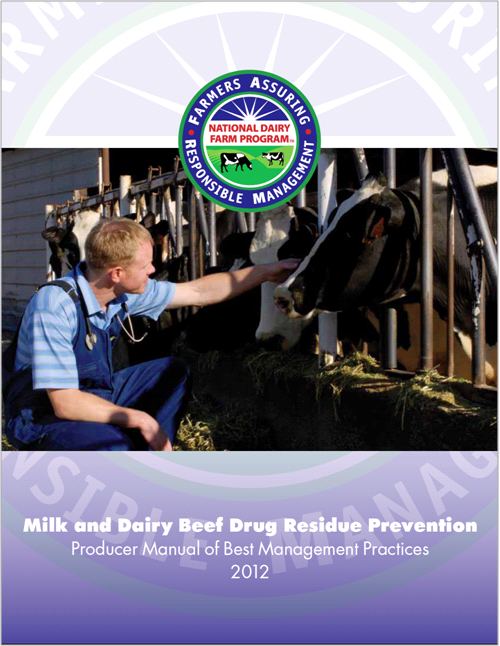 SAN DIEGO, CA – The National Milk Producers Federation’s (NMPF) Board of Directors elected several new officers this week at the organization’s 2011 annual meeting here in San Diego.
SAN DIEGO, CA – The National Milk Producers Federation’s (NMPF) Board of Directors elected several new officers this week at the organization’s 2011 annual meeting here in San Diego.
Randy Mooney, from Rogersville, Missouri, representing Dairy Farmers of America, was re-elected as the organization’s chairman, a position he has held since 2008. Ken Nobis, from St. John, Michigan, representing Michigan Milk Producers Association, was elected First Vice Chairman. Nobis had been serving as NMPF Treasurer.
Cornell Kasbergen, from Tulare, California, representing Land O’ Lakes, Inc., was re-elected as Second Vice Chairman.
Mike McCloskey, from Fair Oaks, Indiana, representing Select Milk Producers, Inc., was elected as Third Vice Chairman; he had been serving as Assistant Treasurer.
Newly-elected to the Treasurer position was Pete Kappelman, from Two Rivers, Wisconsin, representing Land O’ Lakes, Inc. Newly-elected to the Assistant Treasurer position was Adrian Boer, from Jerome, Idaho, representing Northwest Dairy Association.
Dave Fuhrmann, from Baraboo, Wisconsin, representing Foremost Farms USA, was re-elected as Board Secretary. Newly-elected to the Assistant Secretary position was Doug Nuttelman, from Stromsburg, Nebraska, representing Dairy Farmers of America.
Clyde Rutherford, an NMPF Board member since 1978 representing Dairylea Cooperative Inc., who had been serving as First Vice Chairman, chose not to run again for an officer position. Rutherford was given the NMPF Leadership Hall of Fame award today in recognition of his many years of service to the industry.
In other news at the NMPF annual meeting, an extra sharp cheddar cheese made by Foremost Farms USA was awarded the Grand Champion Cheese award at the 2011 NMPF cheese competition. The cheese, made in Marshfield, Wisconsin, received a score of 99.8 from the judges. The Foremost Farms Cheddar was selected from among 149 entries to this year’s NMPF cheese contest.
The 2011 NMPF Communicator of the Year award was presented to Frances Lechner of United Dairymen of Arizona (UDA), in Tempe, Arizona. In addition to directing UDA’s communications, Lechner also serves as the cooperative’s member relations manager, oversees its Young Cooperator program, and serves on NMPF’s scholarship committee.
Members of NMPF’s new 2012 Young Cooperator (YC) Advisory Council met to elect their officers for the upcoming year. Lonny and Michelle Schilter, from Chehalis, Washington, representing Northwest Dairy Association, were chosen to be the new YC Chaircouple. David and Addi Foster, from Fort Scott, Kansas, representing Dairy Farmers of America, were elected YC Vice Chaircouple. Kelly Dugan, from Casa Grande, Arizona, representing United Dairymen of Arizona, was elected Secretary.
The National Milk Producers Federation, based in Arlington, VA, develops and carries out policies that advance the well being of dairy producers and the cooperatives they own. The members of NMPF’s 31 cooperatives produce the majority of the U.S. milk supply, making NMPF the voice of more than 32,000 dairy producers on Capitol Hill and with government agencies.

 SAN DIEGO, CA – The National Milk Producers Federation’s (NMPF) Board of Directors elected several new officers this week at the organization’s 2011 annual meeting here in San Diego.
SAN DIEGO, CA – The National Milk Producers Federation’s (NMPF) Board of Directors elected several new officers this week at the organization’s 2011 annual meeting here in San Diego. SAN DIEGO, CA – The leaders of the National Milk Producers Federation (NMPF) stood before their members today during NMPF’s 2011 Annual Meeting here this week as they reported on the organization’s progress during the past year.
SAN DIEGO, CA – The leaders of the National Milk Producers Federation (NMPF) stood before their members today during NMPF’s 2011 Annual Meeting here this week as they reported on the organization’s progress during the past year. Updated Manual, Additional Materials Available Online for Free
Updated Manual, Additional Materials Available Online for Free



